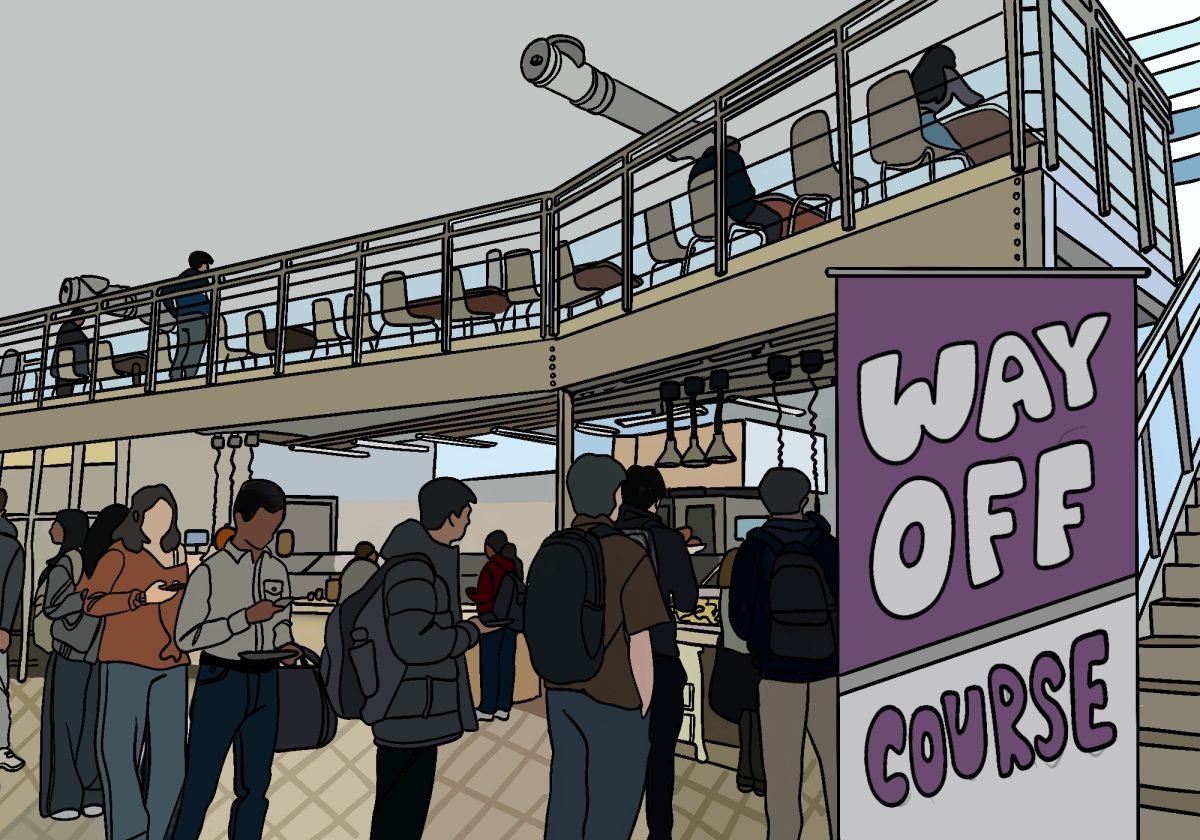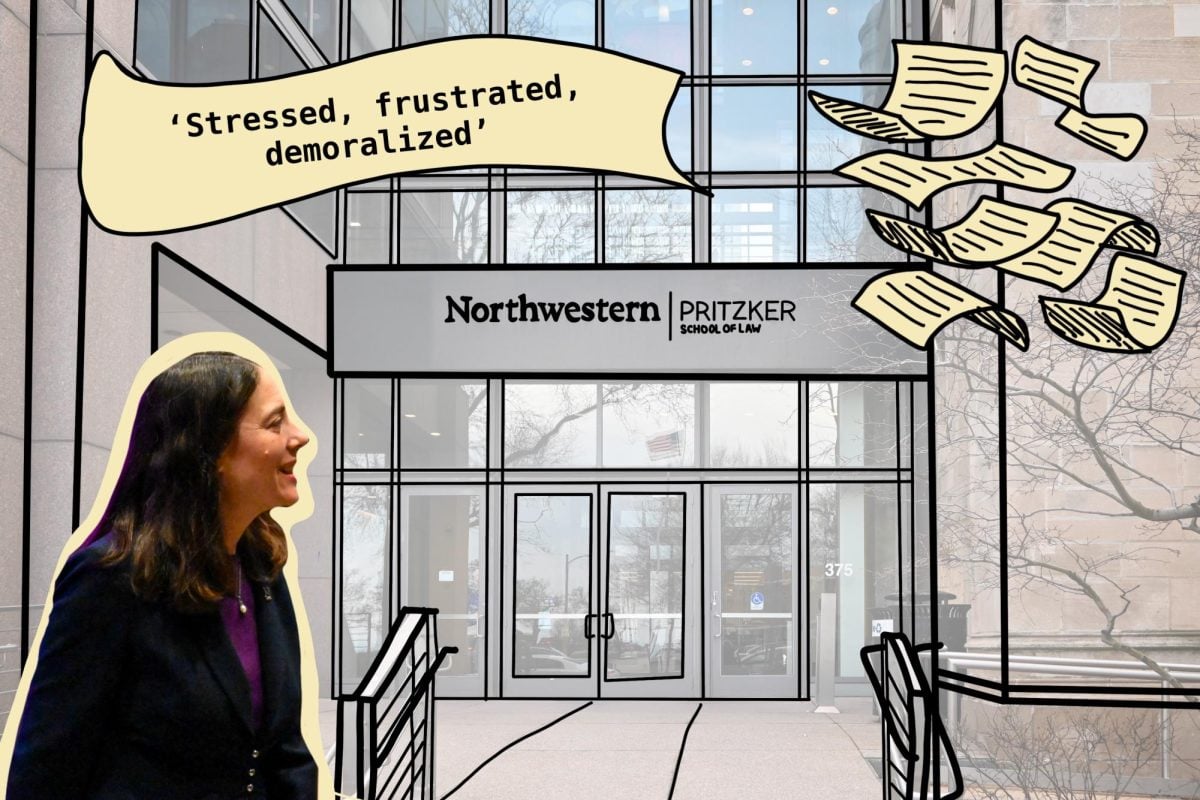It started in May 2009, when Dean of Students Mary Desler announced her retirement. The next month, Kellogg School of Management Dean Dipak Jain said he would step down as well. Then it was Chief Technology Officer Mort Rahimi, who made his announcement that September.
In all, four members of the president’s senior staff and five deans have left or announced their upcoming departures since Morton Schapiro was named the 16th president of Northwestern.
More important than the number of new administrators is what Schapiro’s selections say about his priorities as president. If the seven people hired so far are an indication, Schapiro has little interest in finding senior administrators with previous ties to NU, a common practice of past administrations. In addition, Schapiro appears to value administrators with more experience in student-life issues than in major research programs.
Of the 15 current and former NU administrators interviewed for this story, almost all said Schapiro looks for candidates with a passion for connecting with students. Many also mentioned Schapiro’s focus on diversity in hiring. None listed success in academia or “big research” as a perceived top priority of the new president.
The administrators also noted that a high turnover rate is common in higher education, especially during presidential transitions. Academic studies offer varying results but generally agree that the average administrative tenure lasts five to eight years. By that yardstick, NU’s recent turnover is somewhat above average.
“I think it’s a normal course of the way things go at a university,” said Penelope Peterson, the 14-year dean of the School of Education and Social Policy, who became NU’s longest-serving dean when Law School Dean David Van Zandt left at the end of December. “You always have transitions. You always have people coming and going.”
But Peterson and the other administrators acknowledged the changes at NU over the past year and a half have impacted the University in positive and negative ways.
On one hand, the new faces have brought with them new perspectives and energy to tackle long-standing problems, administrators said.
But the changes also lead to uneasiness as administrators transition into their new roles. For example, new Kellogg Dean Sally Blount said it would take her two years to fully adapt to the job. Other drawbacks include the loss of institutional memory, time-consuming search committees and hampered fundraising ability.
The Schapiro seven
The seven administrators who have been appointed by Schapiro are a diverse group. Among them are two women, two African Americans, a half-Japanese Californian and a Canadian who has never lived in the United States.
That diversity is due to an explicit effort by the new president, according to several administrators who have served on search committees to fill those positions.
“Schapiro is very intentional about saying that is part of how to assemble your top leaders,” said Dean of Students Burgwell Howard, who is African-American and became one of Schapiro’s first appointees when he took over for Desler last February.
Schapiro said he is particularly proud that Blount, another one of his first appointees, is the first woman to run one of the top business programs in the country.
Tamara Johnson, the executive director of Multicultural Student Affairs at NU, said Schapiro is “very invested in diversity in senior leadership,” but she added such an effort “takes time.”
Despite their diversity, Schapiro’s first seven picks do have some qualities in common.
One is their lack of previous ties to NU. In the past, it has been standard practice for the University to promote from within or choose senior administrators who attended NU as students. But most of the administrators who have been selected in the past year and a half do not have that pedigree.
Just one of the group, Blount, attended NU. And only two, Howard and Dwight McBride, dean of The Graduate School, worked at the University in some capacity before their appointments.
“Since Morty himself has no connections to NU, and came from the outside, that is something that would be irrelevant to him,” Peterson said. “He would tend to give less credence to someone who is home-grown.”
The seven new appointees also share an apparent willingness to assume a more public persona than their predecessors did.
Blount, for example, rang the closing bell at the New York Stock Exchange two weeks ago and maintains a frequently updated blog.
And then there’s Patricia Telles-Irvin, who last week was named NU’s next vice president for student affairs. Telles-Irvin is the president-elect of an 11,000-member group of college administrators, a highly public position that contrasts the low-key style of current VPSA William Banis.
Everette Dennis, who will take over as the dean of NU’s Qatar campus in June, said he thinks he was chosen partly for his public presence.
“I know one of (Schapiro’s) concerns is the relationship with the community, whether that’s in Evanston or in Doha – the ability to be a visible member of the community,” Dennis said.
Connecting with students is what Schapiro himself has been best known for in his brief time at NU.
Some of his colleagues noted that over the duration of his career, Schapiro has hired an unusually high number of administrators who have gone on to become university presidents.
When asked about what qualities he values in administrators, Schapiro said he prefers administrators who want to lead without input from above. Members of the president’s senior staff have noted thatSchapiro’s management style is significantly more hands-off than that of his predecessor, Henry Bienen.
But Schapiro said the most important quality in administrators is something simpler.
“I like people who love students. I really do,” he said. “If there’s one thing, that’s the mark.”
The Bienen era
When Bienen took office in 1995, he orchestrated an even more dramatic shift in the senior administration. Almost immediately, he appointed new people to four of the most powerful posts in the president’s office.
Most of those appointees are still with the University. While Provost Larry Dumas stepped down for health reasons in 2007, his replacement, Dan Linzer, remains in the position today. Eugene Sunshine, senior vice president for business and finance, and Al Cubbage, vice president for university relations – both NU alums – also have remained in their positions under Schapiro.
The final administrator of the quartet, Banis, announced his retirement last spring and will formally step down this summer.
“I made a commitment to President Bienen when I was hired that I would stay as long as he wanted me,” said Banis, who is retiring at age 64.
Rahimi said he made a similar promise to the former president. The longtime administrator, who served as Bienen’s only chief technology officer, said he stayed three years longer than he originally intended because he wanted to serve until the end of Bienen’s term.
Rahimi’s position, it turns out, was the hardest for Schapiro to fill. Although Rahimi gave nearly a year of notice before leaving, the position was filled on an interim basis until Friday, when the University announced Sean Reynolds as the permanent replacement. Before that, the University was turned down multiple times by their chosen candidates.
Bienen declined to comment for this article beyond noting that “changes occur within and between administrations.”
In an interview with THE DAILY last spring, Schapiro said he has a very different style than his predecessor did, and that “it’s been a little hard for people to get adjusted.”
Schapiro’s transition clearly has been very different than Bienen’s was. In addition to the relative stability of the very top of the administrative flowchart, t
here has been remarkably little shift among the deans of NU’s six major undergraduate schools; while Bienen replaced half of them in his first two years, none have changed under Schapiro.
On the other hand, every NU graduate school deanship has transitioned in the past year. Two of the deans, Van Zandt of the law school and Andrew Wachtel of The Graduate School, left to become university presidents, and another, medical school Dean Larry Jameson decided to take on the same title at the University of Pennsylvania. Jain, of Kellogg, retired.
“I think it’s purely coincidental,” Jameson said of the departures.
The McQuinn factor
One staffing change that cannot be written off as coincidental is Schapiro’s hire of Bob McQuinn as the vice president for alumni relations and development.
McQuinn, who will lead the University’s upcoming multi-billion dollar capital campaign, has worked for Schapiro twice before.
The duo met at the University of Southern California, when Schapiro was serving as the dean of the College of Letters, Arts and Sciences and McQuinn was the senior associate dean for development and public affairs. A year into his tenure at Williams College, Schapiro invited McQuinn there to lead a capital campaign – a similar timeline to what’s transpired at NU.
University presidents and capital campaign leaders usually transition together, McQuinn said.
“Those two people, they have to have a close professional and personal relationship,” he said. “You can’t afford not to have a high level of comfort on all levels.”
McQuinn succeeded Sarah Pearson, who served as chair of the committee that planned Schapiro’s inauguration. Pearson was named NU’s chief strategist for institutional partnerships, a new position, in September – three weeks before McQuinn was named her successor.
Pearson declined to comment.
‘Momentary bits of chaos’
McQuinn’s primary responsibility, raising money for the upcoming capital campaign, will be temporarily hindered by the administrative turnover, Schapiro said in an interview with THE DAILY in October.
“It’s always hard to ask people for money the first time you meet them,” Schapiro said of the challenges of having new administrators. “In fact, the cardinal rule of fundraising is you don’t do it the first time. You don’t say, ‘I’m really happy to meet you. How about $5 million?'”
The turnover also has the potential to cause disruptions in productivity, some administrators said. Banis called change “unsettling,” and Sunshine said it caused “unease,” while Howard referred to “momentary bits of chaos” caused by figuring out “who is the decision-maker for a given area.”
But they and others said NU has a strong foundation to support new hires.
“Northwestern is an institution who has had a lot of people who have been here a long time,” said Marilyn McCoy, the vice president for administration and planning, who with 25 years of experience is easily the longest-tenured senior administrator at NU.
Linzer, the provost, said administrative turnover is “healthy for the institution.”
“It’s really important for institutions like us to rethink ourselves on a regular basis and get new energy,” he said.
The ultimate impact of the changes is hard to understand and even harder to quantify. But the interviewed administrators were optimistic; each one of them weighed the pros and cons of the turnover and eventually settled on the positive side.
Jeffrey Glassroth, the interim dean of the Feinberg School of Medicine, said NU is in good shape because of the strength of the institution as a whole.
“Great places – and this is a great place – are bigger than any person or group of people,” Glassroth said. “Change is a challenge but it’s also an opportunity, and I think we’ll make it an opportunity more than a challenge. I’m very optimistic.”






